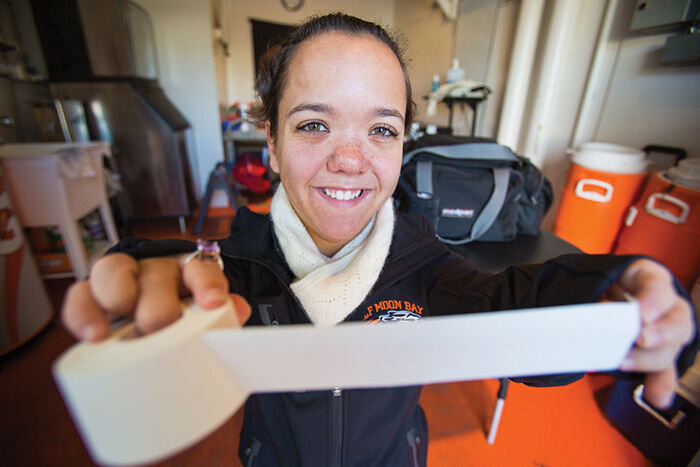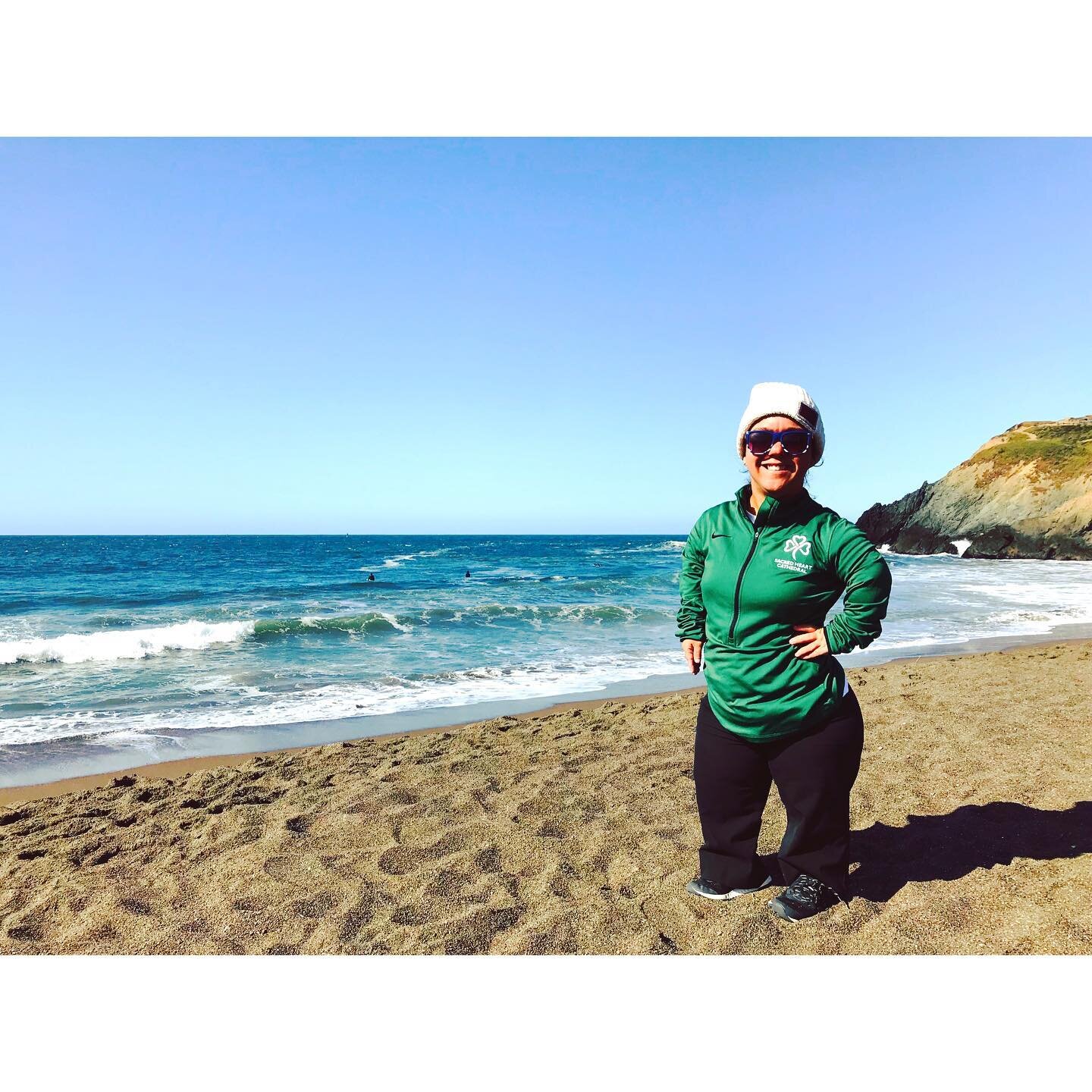Girl Talk: Standing On The Sidelines - Part 2

Here it is, part 2 of my conversation with Jessica Markbrieter. We discuss her career highlights, LP representation in sports medicine, and how an aspiring athletic trainer could get started.
JILLIAN: What is your proudest achievement?
JESSICA: I have two published research articles written while I was in grad school in the Journal of Sports Rehabilitation and the NATA Journal, which I presented at a conference more than a few years ago. That was really exciting..
Also, at Half Moon Bay, while I didnt think my dwarfism attracted attention, HMB high school did an “introduction/welcome to HMB” video that led to the local newspaper wanting to write an article on me and the Athletic Training position at HMB. That article turned into something else and it kept getting bigger and bigger and then one of the localBay Area news person did a piece on me.
JILLIAN: That is so cool.
JESSICA: Thank you. Seeing that transition from a school announcement and interview to the local newspaper to the local TV station and so on was really exciting.
JILLIAN: Amazing.
I think that when people talk about disability in sport, the focus is almost always on the athlete. For example, being a disabled athlete or being a Paralympian. Do you think that people with dwarfism, and with disabilities in general, are represented behind the scenes in sports? That could include sports medicine and sports management.
JESSICA: I don’t. I think those with disabilities are not well represented. I always encourage it and, while I know there are a couple of male LPs in the profession or working to get into the profession, I always encourage more females as well.
That’s a great question. I would say unfortunately no. But, just like in athletic training we talk about how it was, at one point, a man’s world. Not only having to break that door down by being a female, I am then breaking down another door by having a disability, neither of which means I cannot do the job.
JILLIAN: Right.
JESSICA: Yes. Do I see other disabled Athletic Trainers? At conferences, maybe. But it is not common.
JILLIAN: So then what advice would you give to an LP who does want to go into athletic training? They may not know where to start or don't think they can do it because of self-doubt or because someone else told them so.
JESSICA: I would say that it is definitely a lot of work with all the academics and clinical hours. If you are passionate for the field then definitely go out and pursue it. Find those people, those mentors, those colleagues and those friends that are supportive of you and lean on them in times when you are being faced with those who are not. Really focus on the positive versus negative, which I know is easier said than done. When I was in college at the time I was very impressionable and once I was told I can’t do it and thought, “Well, maybe I can’t.” Don’t let that defeat or discourage you. I did not have quite a voice then so I didn’t say anything. But, I know now certain things I could or should have said to stand up for myself in those scenarios which can be scary if the person is in an administrative position.
Really believe in what you are doing, really be creative and find new ways to do things. For me, I worked with my teachers and classmates, asking them if I could practice on them, because I wanted to see how a different technique works. You are always learning from other individuals. One other reason why I wanted to transition into the job I have now is that I was the sole Athletic Trainer at Half Moon Bay. That is great because you are able to grow a sense of independence, you can create a program and platform for yourself. While, working with someone else adds that collaboration aspect and allows you to be able to bounce ideas off from one another. That is something that I enjoy.
JILLIAN: When people tried to warn you away from this profession, what excuses did they come up with?
JESSICA: I feel like a lot of their excuses were about the physical component of the job. Before even thinking, “She’s knowledgeable. She knows what she’s doing,” people asked, “How are you going to lift this? How are you going to be able to carry this? How are you going to take an injured athlete off the field?” People would ask those questions or just tell me I wasn’t qualified to do the job based on what they believed I could physically do. I’ve had positive interactions with football coaches and not-so positive interactions with football coaches. While I was at Half Moon Bay, our football coach, along with my athletic director, were very supportive. Building that great working relationship was one of the reasons why I like working on the high school level. If I ever said, “Hey, I’m going to need help with taking the equipment to the bus or XYZ,” his response was “I’m on it,” and he would have some of his kids help me. There was never an and, if, or but. That was very nice. Another scenario, when treating injured athletes on the field, I had rehearsed with the coaches and athletes in the beginning of the season, so that the transition to on/off the field was more “seamless” and again, the support was always there. It’s great for an Athletic Trainer to be supported by their football coach and athletic department. Now I know there I have put a lot of attention on football, but these scenarios can apply for many sports/teams within your athletic program.
Whether you’re a little person or not, it can be either a nice working relationship or a very difficult one with your coaching staff, especially if you have a more conservative mindset and want to hold the kids back because of a certain injury and the coach insisting on them playing. My football coach and I were on the same page when it comes to how I treat his athletes. He did not question if I said a player was not going back in the game. That is very great whether you are a little person or not.
JILLIAN: That’s amazing. Who do you look up to? In general and in your field.
JESSICA: That’s a good question. In general, my friend Danielle. She and I are really good friends and we motivate each other. Our individual strengths balance out each other’s weaknesses. We encourage one another to grow and are there for each other to be that positive support and talk to each other if something didn’t go well, whether it is something we can relate to or not.
In addition, I look up to one of my colleagues that I went to grad school with, Leeah. She is another person that we can really relate with one another, whether it be athletic training or just life.
In my profession, I look up to my high school Athletic Trainer, Yvette. She is the one who got me interested in Sports Medicine. I do keep in touch with her from time to time. She is still at the high school I went to which is pretty cool. Another person I look up to is my colleague at SHC, Oscar. He has/is a wonderful mentor, and someone I am constantly learning from.
JILLIAN: I love that. Do you have a favorite memory on the field? Or what is the best part about being on the field?
JESSICA: As an Athletic Trainer you try to visit your other athletic training friends. There are seldom times when we are not all working at the same time. So when you get to see each other in your work environment, to me, is really exciting. Two of my athletic training classmates, Leeah and Arika, came up to San Francisco and saw me work at Half Moon Bay and that, to me, was so much fun to have them there. (Women supporting women!)
Also, some things that are nice and humbling is that, when I go to introduce myself to coaches or refs, they remember me from some prior interaction. I’ve obviously made some kind of impact with or without even realizing it. It is nice to be recognized.
JILLIAN: The final serious question that I ask everybody is are there any questions that I have not asked that you would like to answer?
JESSICA: That is another way of asking if I have any questions.
JILLIAN: Yes, it is. You can say no, it’s okay.
JESSICA: Like I said before, everybody is different. I am very open to talking about the profession or how I handle it with my disability or things about my disability. I’ve given presentations on dwarfism awareness to my graduate school, my high school, and my football team individually. I’ll remind them October is Dwarfism Awareness Month and let them know what that means. Being able to educate others has been great. To hear when someone says, “Oh yeah, I heard someone use the m-word and I corrected them,” makes me so happy.
JILLIAN: I love when that happens.
JESSICA: Seeing that your education making an impact is very nice. I want to do that here at Sacred Heart Cathedral but we haven’t quite had that opportunity with COVID.
JILLIAN: Final question, which I promise is more fun: No rules applied, what would be your last meal?
JESSICA: I thought you were going to ask what my dream job would be. I get that question all the time.
JILLIAN: Is your dream job something different?
JESSICA: I get asked a lot about what type of athletes I want to work with, whether it’s college, professional, high school, non-traditional, or performing arts, etc. I want to be placed where I can grow both educationally and personally. If I hit the glass ceiling, which I feel like I did before, then I want to go somewhere else. I don’t necessarily see an end goal right now. But, at some point in my career, I think it would be really cool to work with the Paralympians. That is something I always keep in the back of my mind.
To go back to your previous question, what would my last meal be? This is kind of ironic because, as an Athletic Trainer, when we are working we get busy and sometimes we find ourselves without the time to eat lunch/dinner. That’s just part of the job. At the place I’m at now lunch is offered to us which is amazing. I’ll remind my co-worker that we need to take a break and eat lunch. He is very much, “Let’s do a working lunch,” and I’m like, “It’s also important that we are taking care of ourselves.” So, always have snacks on hand, just in case!
I love any kind of pasta.. I also really love snacking, more than just sitting down to eat a big meal. I typically have hummus with pita chips or veggies, some fruit, and protein bars in my snack bag.
JILLIAN: What are you drinking with your pasta? :
JESSICA: If I’m working, a diet coke. If I’m not working, a glass of wine.
JILLIAN: Yes girl, love it.








